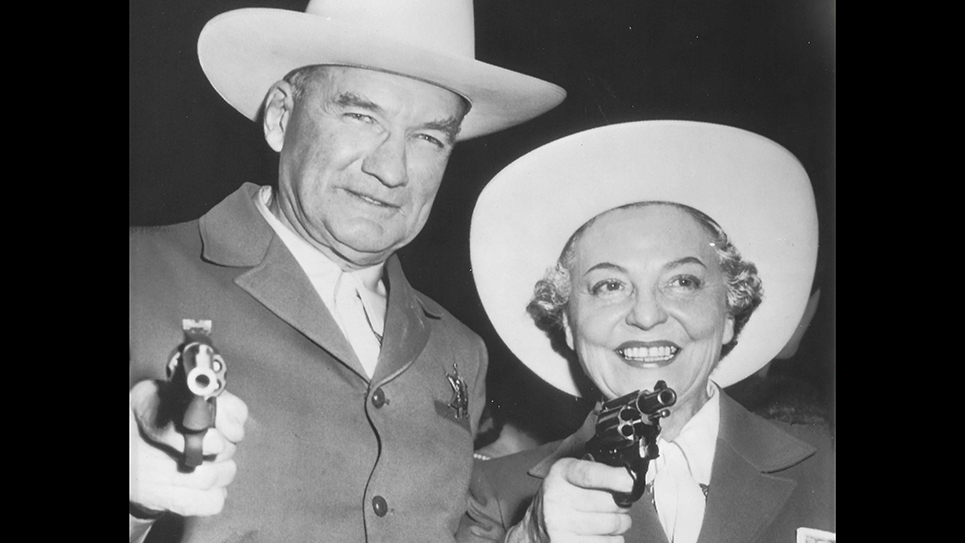By Tom Mattingly
Sometimes, the best coaching search is no search.
Here are three prominent examples.
Consider Dec. 3, 1976, a day Big Orange Country had breathlessly awaited. A Tennessee legend was coming home, 20 years after he had played his last game in an orange and white uniform.
Knoxville Campus Chancellor Dr. Jack Reese’s remarks to approximately 100 media representatives at Stokely Center were understated but brilliant: “After an extensive nationwide search, I am pleased to welcome Coach Majors here.”
“Coach Majors” was John Terrill Majors, a 1956 All-American and Heisman Trophy runner-up, two-time SEC “Player of the Year,” and the first of three Majors brothers to play at Tennessee. He was overwhelmingly the “people’s choice.”
For his part, Majors had actually experienced this drill before. In 1954, after a 26-0 loss at Vanderbilt in John’s sophomore season, Bob Neyland had dismissed Harvey Robinson, his successor, calling it the “hardest thing I’ve ever had to do.”
Bowden Wyatt, the man with the movie star good looks, was the “people’s choice” of that era. He was captain of the 11-0 1938 team and one of the most popular players of his or any other time. He came on board on Jan. 8, 1955, saying, “I’m going back to the job I’ve always wanted.”
The thinking among the fan base was that Tennessee was “back,” among the elite of college football. There was no one else Vol fans wanted this time, either.
Wyatt had won titles in the Big Sky Conference at Wyoming and the Southwest Conference at Arkansas. Coming to Knoxville was the culmination of a coaching career that had begun at Mississippi State in 1939. During his time at Wyoming, Vanderbilt and Duke had tried to entice Wyatt to their campuses, but to no avail.
(No one knows what Wyatt’s teammate George Cafego might have said had Bowden gone to Vandy, but it wouldn’t have been pretty, given Cafego’s undisguised distaste for the Commodores.)
The 1963 coaching search, after Jim McDonald had been let go, was intriguing. Numerous names were mentioned in the media, e.g., Murray Warmath (Minnesota), Paul Davis (Mississippi State), Jim Owens (Washington), and Clay Stapleton (Iowa State). Warmath and Stapleton were former Vols, Davis was from Knoxville, and Owens had no apparent Tennessee connections. One News-Sentinel story suggested that Ole Miss head coach John Howard Vaught was in the running to head from Oxford to Knoxville.
Knoxville News-Sentinel sports editor Tom Siler wrote there was a lengthy meeting (calling it a “secret session”) with Athletics Board members and “key trustees.”
Athletic Director Bob Woodruff wanted Arkansas assistant Doug Dickey, his quarterback at Florida, who had been barely mentioned as a contender by media types. Tabbing Dickey as a steward of the Vol program was a surprise to most observers. That decision led to two Athletics Board members resigning, and a compromise ensuing, making McDonald an assistant athletic director.
“I knew a long time ago that I was going to lose Dickey to Tennessee,” said Arkansas head coach Frank Broyles. “Every time I saw Woodruff, he would ask me about Doug’s progress.”
In late 1969 and early 1970, there was another “search” after Dickey took the Florida job. Woodruff let it be known that assistants Doug Knotts, Jimmy Dunn, and Bill Battle were in the running, with Battle being considered the apparent “sleeper.”
Trustee Col. Tom Elam and president Dr. Andy Holt wanted Majors, then in his second year at Iowa State, but Elam, a firm believer in the chain of command, reluctantly convinced Holt to support Woodruff’s decision. Holt had told Elam “your vote is my vote,” but relented when Elam mentioned the organizational pitfalls of overriding his athletic director on such an important issue. Thus, Battle got the nod.
As Battle’s star faded in the mid-1970s, the public outcry was for Majors, who had the Pittsburgh program in full gear, headed toward a national championship in 1976.
When his alma mater beckoned, Majors accepted, not without significant thought. “It was the most difficult decision I’ve had to make in my life,” he said. “I agonized over it. I had been away from Tennessee 17 years.”
He led Tennessee to three SEC titles and 12 bowl appearances during his time on the west sideline of Shields-Watkins Field.
Sometimes these “searches” are what they are advertised to be, sometimes not. Few observers remember what was said at the other Tennessee media conferences announcing coaching changes, but Jack Reese, an able and affable administrator, set a memorable standard. The peasants would have literally stormed the castle had any name other than John Majors been uttered that December day in 1976.






